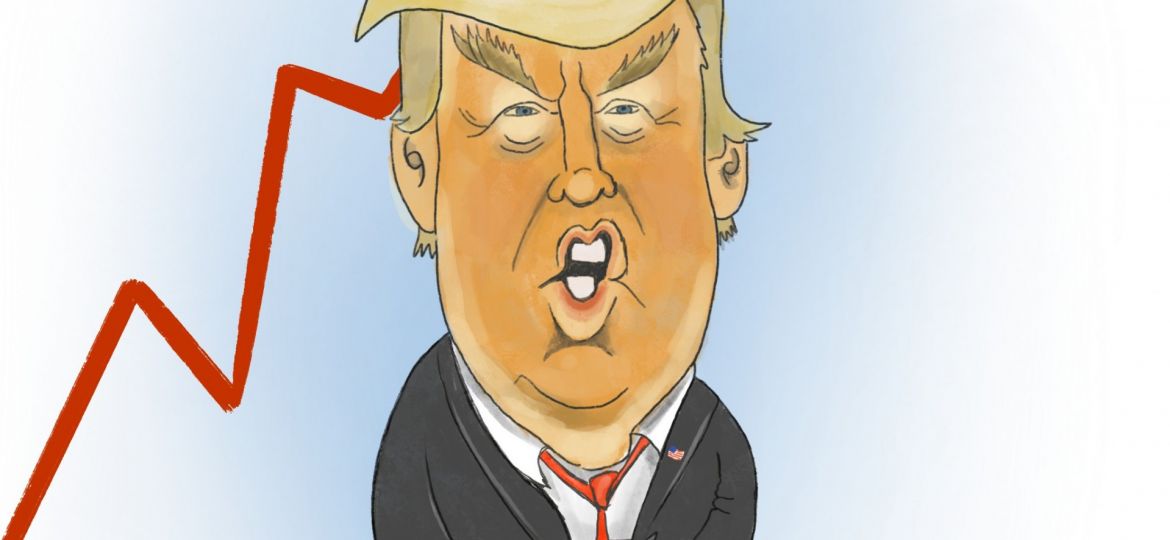
Nearly 80 percent of registered voters have heard President Donald Trump’s comments to journalist Bob Woodward, where Trump admitted to downplaying the gravity of the COVID-19 pandemic. Trump repeatedly makes shocking and grotesque statements, so is this month’s revelation really any different?
Typically, when a Trump soundbite makes media rounds, it’s because he has further tarnished his character. Trump has said he would date his daughter, defended white supremacists as “very fine people,” and made ridiculous comments about women’s bodies — all of which reflect Trump’s general immorality as a human. Trump remarks to Woodward, however, represent his failure as a president. Even so, it probably will not sway any voters.
Democrats have long felt that Trump’s character makes him unfit for office. But many Republicans have rationalized Trump’s behavior through a utilitarian lens. As long as Trump pushed Republican policy and rhetoric, he could behave however he pleased, or so the line of reasoning goes.
“Too Much and Never Enough” by Mary Trump and “The Truth about Trump” by Michael D’Antoni both raised concerns about what type of person the President is, but neither did much to sway public opinion. Bob Woodward’s “Rage” simply levels the argument that Trump is unfit for office.
Woodward’s interviews reveal that Trump knowingly mishandled the COVID-19 pandemic. Unlike many of the previous books about Trump’s presidency, “Rage” uses corroboration from interviews with the President himself.
Trump told Woodward the truth about the virus, while he lied to the public. “[COVID-19] is also more deadly than even your strenuous flus,” Trump told Woodward on Feb. 7. Three weeks later, Trump told reporters at the White House, “this is a flu. This is like a flu.”
In his blatant maladministration of the pandemic, Trump has made the U.S. the epicenter of a global catastrophe. Trump has cost Americans’ lives and damaged the economy. How can Republicans reconcile Trump’s emergency response with their utilitarian perspective?
An article in the Atlantic examines how cognitive dissonance, the discomfort we feel when our beliefs and actions contradict, affects modern political beliefs. “The minute we make any decision—I’ll buy this car; I will vote for this candidate; I think COVID-19 is serious; no, I’m sure it is a hoax—we will begin to justify the wisdom of our choice and find reasons to dismiss the alternative,” write Social Psychologists Elliot Aronson and Carol Tavris.
Revelations, like those in Woodward’s book, will not sway Republicans’ perspective because they have already decided Trump is a good president. The polarization of our media allows for further alleviation of cognitive dissonance, as Republicans can read, watch or listen to sources that rationalize Trump’s actions.
The Woodward tapes might offer a terrifying glimpse behind the Presidential veil, but they are not swaying any voters.
Brennan is from Rapid City, SD. His majors are ancient studies and religion.
brink4@stolaf.edu

